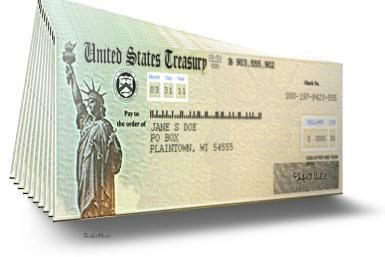Greece Is Sending Out Cost Of Living Checks; Should America Do The Same?

Inflation is turning into a significant problem for low-income Americans and small businesses. That’s especially the case for energy inflation, which results from environmental policies to a great extent. The American government should do its best to help these vulnerable groups cope with the situation by looking closely at what other governments have been doing worldwide.
Europe has been at the forefront of the drive for clean energy. But clean energy comes at a high cost for consumers and businesses. A situation made worse by the recent spike in inflation.
Last August, Greek consumers paid 50 euro/MWh for electricity. By December, that climbed to levels higher than 200 euro/MWh. That was devastating for small and medium enterprises (SME), which account for approximately 99% in Greece. They needed government help or faced the prospect of going out of business altogether.
Government officials understood the dire position SMEs and Greek citizens were in as the winter aggravated the situation.
“In front of this extreme condition, we shouldn’t stay idle,” stated the Greek minister of environment and energy Costas Skrekas in a speech at the European Council. He then went on to ask for the creation of a European centralized mechanism “to support households and SMEs against these tremendous energy revaluations.”
The European Council hesitated to weigh the costs and benefits of sending out checks to help European citizens with energy bills. But not Greece, which sends out energy support checks, helping push electricity costs to 185.1 euro/MWh, below the EU’s average (260 euro/MWh).
Athens Chamber of Commerce and Industry Counsellor Fanis Matsopoulos heralds this policy.
“The measures taken by the Greek Ministry of Energy are timely, effective, in the right direction and always within the national fiscal frame.” But he thinks more should be done.
“The Greek government must immediately provide financial aid to both individuals and enterprises, otherwise we are walking towards an economic shutdown and a social explosion,” Matsopoulos adds. “It is the right time for the EU institutions to hear the Greek political voice and proceed as soon as possible in the establishment of the above mechanism, to secure the long-term survival and growth of SME and low-income citizens across Europe.”
Helping low-income citizens and small enterprises pay energy bills has a couple of downside effects, like leaving heavily indebted countries (Greece is one of them) more indebted. And Greeks know too well what that means for the country when the debt bill is due.
These policies add fuel to the inflation fire.
“Sending more checks to the public to ameliorate the impact of inflation might sound like a good idea, but the result of doing that would most likely further increase inflationary pressures,” said Nicholas Creel, assistant professor of business law at Georgia College and State University. “The reason for this is that stimulus checks increase aggregate demand in the economy, hence it 'stimulates' it. However, with supply remaining unchanged, the net effect is that it drives up prices.”
© Copyright IBTimes 2024. All rights reserved.






















